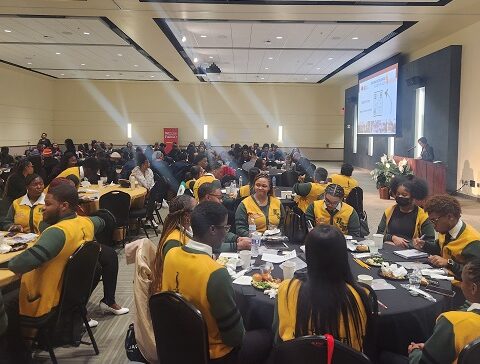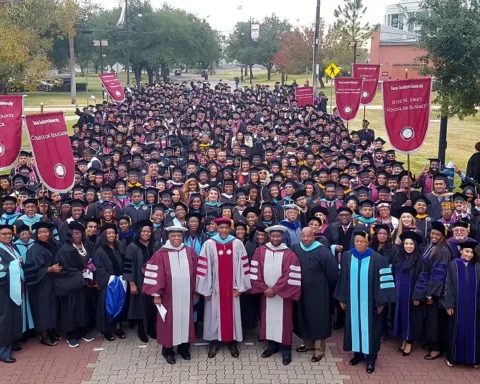Courtesy of Texas Southern University
Texas Southern University has joined a group of historically Black colleges and universities (HBCUs) and other minority-serving institutions (MSIs) in an innovative new partnership. The Southern Regional Education Board (SREB) announced its HBCU-MSI Course-Sharing Consortium, a collaboration designed to help HBCUs and MSIs enable students to stay on track toward graduation.
“Texas Southern University is honored to be a part of this Consortium,” said Acting Provost Dr. Lillian Poats. “The University is committed to eliminating barriers that prevent our students from graduating on time. We believe this innovative effort by some of the leading minority-serving institutions and historically Black colleges and universities can be a catalyst for even more multi-institutional collaboration.”
Powered by Acadeum, the consortium brings together public and private institutions to expand students’ access to courses, at the times they need them, within the culture that is a hallmark of the experience at HBCUs and MSIs.
“HBCUs are indispensable drivers of educational and economic opportunity, as well as cornerstones of the community and incubators for culture in this country,” said Roslyn Clark Artis, president of Benedict College and co-chair of the SREB-HBCU-MSI Collaborative. “Enabling students to access courses from other HBCUs and MSIs, while providing the support and resources of these richly diverse institutions, is the next step in a collective effort to realize the full promise of HBCUs and MSIs as critical sectors in America’s higher education ecosystem.”
The partnership was born out of the SREB HBCU-MSI Collaborative, which fosters strategic partnerships to increase capacity and improve student success among like-minded institutions. The approach was inspired by Benedict College’s course-sharing partnership with Dillard University for an accelerated winter 2021 term for seniors who needed up to six credit hours to graduate in the spring. That program, made possible in part by a grant from UNCF, helped more than 90% of participants get back on track to graduate this spring.
“We need innovative ways to clear obstacles that stand in the way of students completing their degrees and entering careers that fuel our economy,” said SREB president Stephen L. Pruitt. “When course sharing helps a student get the class she needs for graduation or broadens her study with a class from a different college, that’s a win for all of us.”
The SREB consortium will increase the availability of new and specialized online courses among participating colleges and universities. Courses will count fully toward GPA, financial aid and graduation requirements at students’ home institutions, ensuring that learners don’t waste credits or time on their path to graduation and rewarding careers. In addition to Texas Southern University, inaugural participants in the consortium include Albany State University, Albany, GA; Benedict College, Columbia, SC; Clinton College, Rock Hill, SC; Fort Valley State University, Fort Valley, GA; Langston University, Langston, OK; and Southeast Arkansas College, Pine Bluff, AR. Additional members will be announced in the coming months.
“Texas Southern University is committed to finding and creating ways for students to succeed in the classroom and beyond,” said TSU President Dr. Lesia L. Crumpton-Young. “The University looks forward to working with these other esteemed institutions who are all committed to eliminating barriers that would inhibit the ability of students to reach their full potential. This partnership is an example of TSU’s commitment to achieving unprecedented success at an accelerated pace.”
Course-sharing continues to grow as a tool to help colleges and universities enable learners to progress and succeed in their pathways. Acadeum’s course-sharing platform has helped over 425 institutions of higher education and features a catalog of more than 40,000 online courses.
“HBCUs and MSIs are an integral part of the fabric of American higher education,” said Dave Daniels, president of Acadeum. “We are proud to help these institutions work together and share resources to ensure that more students get across the stage on time, while also opening unique learning opportunities.”





